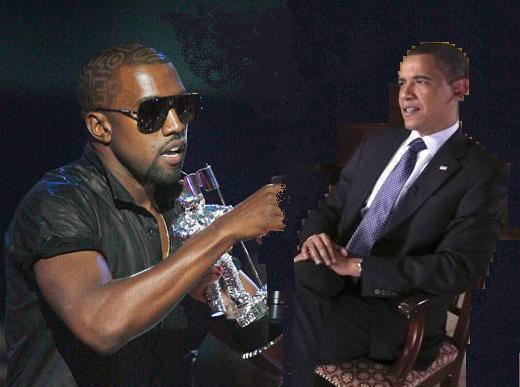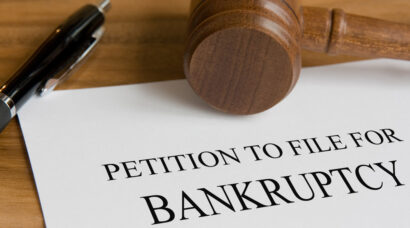[youtube=https://www.youtube.com/watch?v=q9Ngf3GB3uQ&feature=player_profilepage]
Commenting on the recent blog traffic attracting recent incident when Kanye West famously interrupted Taylor Swift while she was receiving an award at the MTV Music Awards, President Barack Obama called Mr. West a “jackass.” (audio)
As part of a series of posts using celebrity exploits as case studies to inform readers about various legal issues in New York, we will discuss whether Kanye West has a cause of action in New York against the President for defamation.
Defamation in New York is generally characterized as “the making of a false statement which tends to ‘expose the plaintiff to “public contempt, ridicule, aversion or disgrace, or induce an evil opinion of him in the minds of right-thinking persons, and to deprive him of their friendly intercourse in society.'” Dillon v. City of New York, 704 N.Y.S.2d 1, 5 (1st Dept. 1999). The elements of a claim for defamation in New York, generally, are:
- the statement is of a defamatory nature,
- it must refer to the plaintiff
- it must be published (communicated in any way) to someone other than the plaintiff.
- the statement must be a fact (as opposed to an opinion) that is false
- it must be published without privilege or authorization to a third party
- It must have been published negligently or worse (i.e. recklessly or intentionally); and
- the statement must either cause special damages or constitutes defamation per se.
Id.In terms of the specific elements of defamation, how would they apply with regard to Mr. Obama’s statement about Kanye West?
-
The President’s statement was probably not of a “defamatory nature” because it did not subject Mr. West to any more “public contempt, ridicule, aversion or disgrace” than he would have otherwise experienced due to his very public and embarrasing conduct.
-
The statement did indeed refer to Mr. West.
-
Mr. Obama’s statement was “published” (communicated) to the country through the CNBC tweet that published the insulting soundbite.
-
Whether the statement that Mr. West is indeed a “jackass” is probably a matter of opinion, rather than fact. Defamatory statements are only labeled as such when they make a factual allegation, and the plaintiff has the burden of proving that the statement is factually false. 600 West 115th Street Corp. v. Von Gutfeld, 603 N.E.2d 930, 934 (1992). Although some may consider Mr. Obama’s characterization of Mr. West as a “jackass” factual, most consider that evaluation an opinion, rather than a fact. Thus, this element of defamation is probably not met.
-
The allegedly defamatory statement was communicated to a third party (several million of them, actually), so that element of defamation is there.
-
The “publication” of Obama’s statement was probably at least negligent. This president was not the first to be embarrassed when things they said in front of microphones they thought were off turned out not to be. This happened to Ronald Regan in 1984, George W. Bush in 2006 and 2008, and Bill Clinton last year. The long history of microphone gaffes probably indicates that Mr. Obama was on notice that one cannot rely on the assumption that microphones that one thinks are off, really are. So I think Mr. West would probably be able to show that Obama consciously relayed his comments to a third party, by at least a negligence standard. Not only that, but the audience was present and he knew he was talking to them, so the “publication to a third party” element is probably met.
-
“Words that expressly or implicitly tend to injure one’s personal or professional reputation are considered defamatory per se.” 43A N.Y. Jur. 2d Defamation and Privacy § 7. I doubt that Mr. Obama’s characterization of Mr. West would tend to harm his personal or professional reputation any more than his initial behavior already has.
But even if Mr. West did have a legitimate claim of defamation, he would not have a cause of action if Mr. Obama could assert a “privilege,” as mentioned in #5 above. One of the privileges that an alleged defamer can assert is “absolute immunity” if he or she is a government official. Could Mr. Obama assert the privilege of “absolute immunity” as a government official to deflect the claim?
Probably not. A governmental official may only use the defense of absolute immunity when he is speaking in his official capacity at the time of the allegedly defamatory statement. Id. at 932. Statements that a governmental official makes to the media are not considered part of his official capacity. Goodyear Aluminum Products, Inc. v. State, 203 N.Y.S.2d 256, 260 (N.Y.Ct.Cl. 1960), rev’d on other grounds, 207 N.Y.S.2d 904 (3d Dept. 1960).
It would seem that even had Mr. West wanted to sue the President for defamation in New York, his efforts would probably not be successful. One who wants to sue for defamation his a high burden to overcome and should seek experienced legal counsel to see if he or she has a case.
And as always, if you are considering an attorney to sue for defamation or any other type of “personal injury,” your office has over 45 years experience in these matters. So please do not hesitate to contact our office by either e-mail or by calling 800-344-6431.













